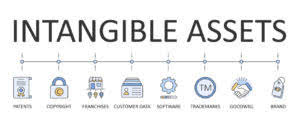Prepaid Rent Journal Entry Example

That is why the company needs to make the January 31 adjusting entry above by increasing $2,500 in an expense account (rent expense) and decreasing $2,500 in an asset account (prepaid rent). The expense for the first two months has been incurred because the company has used the rented equipment or occupied the leased space, but cash for these services has not been paid. The company has recorded rent expense for the first two months of the quarter but they have an accrual for the payment. For example, an organization’s building rent is due by the first of the month. For the check to reach the landlord and post by the first, the organization writes the check the week before on the 25th.
- To summarize, rent is paid to a third party for the right to use their owned asset.
- When a company pays rent in advance for a future period, it has a prepaid rent amount that represents the right to use the leased property in the future.
- If you would like more information on income received in advance (often called unearned revenue), check out our tutorial here.
- Similar to the treatment of prepaid rent, under ASC 842 the accruals are recorded to the ROU asset instead of a separate accrued rent account.
- It is important to note that the above referenced entries are how Prepaid Rent was accounted for under ASC 840.
Is Rent Expense Debit or Credit?
- Deferred rent is a liability (or an asset) that results from the difference between the actual payment to the lessor and the straight-line expense recorded on the lessee’s statements.
- In the case of the rent abatement above, the company begins paying rent but the payments are larger than the average rent expense which includes the abatement period.
- Because of the inclusion of the minimum threshold, the lessee has a commitment to pay at least the lower amount regardless of actual performance or usage.
- And the credit reflects the reduction in their bank balance with the $6,000 going to their new landlord.
- The key question here is whether this “security deposit” is refundable.
Finance Strategists has an advertising relationship with some of the companies included on this website. We may earn a commission when you click on a link or make a purchase through the links on our site. All of our content is based on objective analysis, and the opinions are our own.
- Under current accounting conceptual frameworks, this meets the definition of an asset – it’s that simple.
- The accounting process for booking prepaid expenses is to initially record the payment as an asset and then gradually reduce that balance over time as the goods or services are used.
- Prepaid rent is a common financial activity for businesses, reflecting payments made in advance for rental space.
- The matching convention requires allocation of the expenditure between the asset that represents the remaining economic benefits and the expense that represents the benefits used or consumed by the firm.
- Prepaid or unexpired expenses can be recorded under two methods – asset method and expense method.
Prepaid Expenses

We have a growing range of accounting tutorials on the site; please let us know what you think. If the lease payment is variable the lessee cannot estimate a probable payment amount until the payment is unavoidable. Even if a high certainty the performance or usage the variable lease payment is based on will be achieved does exist, the payments are not included in the lease liability measurement. While it is highly probable performance or usage will occur, neither of these things are unavoidable by the lessee until after they have been completed. Base rent, also known as fixed rent, is the portion of the rent payment explicitly stated in the contract.
- Not an uncommon question we see come up around prepaid rent is the question “is it an asset or a liability?
- At the end of the year, there may be expenses whose benefits have been received but not paid for and expenses that may have been paid, but their benefit will appear in the next financial year.
- Prepaid expenses are recorded as an asset on a company’s balance sheet because they represent future economic benefits.
- When the check is written on the 25th, the period for which it is paying has not occurred.
- This process is repeated as many times as necessary to recognize rent expense in the proper accounting period.
- Used by over 175 of the Top 400 CPA firms, our software helps rid your lease accounting of errors while ensuring compliance with the latest standards.
Get in Touch With a Financial Advisor
On the 1 of January they pay an advance of $6,000 to cover the first three months of the year. Keep reading to learn all about prepaid rent, whether it’s considered an asset, and how to record prepaid rent. When booking journal entries, the difference https://www.facebook.com/BooksTimeInc/ (or plug) would be a credit to AP or Cash to account for the prepayment.
If the lessee’s organization decides to make a payment before it’s due, there may continue to be an outstanding balance in the clearing account until https://www.bookstime.com/articles/unrestricted-net-assets the lease accounting entries catch up. Oftentimes, this entry should not be adjusted in lease accounting software and will clear itself up in the following month. Both rent expense and lease expense represent the periodic payment made for the use of the underlying asset.


A prepaid expense is a good or service that has been paid for in advance but not yet incurred. Common examples include rent, insurance, leased equipment, advertising, legal retainers, and estimated taxes. In business, prepaid expenses are recorded as assets on the balance sheet because they represent future benefits, but they are expensed at the time when those benefits are realized. The cash paid for prepaid rent is a crucial indicator of the company’s liquidity and cash requirements. Stakeholders can assess how much cash is tied up in prepayments and evaluate the company’s ability to manage its cash flow effectively. Unlike the balance sheet and income statement, the cash flow statement does not include the subsequent monthly amortization of the prepaid rent.

Make Sure Your Organization Has Transitioned and is Operating Under the New Rules for ASC 842

The matching principle is the basis for allocating expenses to is prepaid rent an asset the periods in which they are used or consumed. It requires that expenses be matched with the revenues they help generate. However, the rights to these future benefits or services rarely last more than two or three years. The difference between assets and liabilities is that assets increase the net value of an entity.
